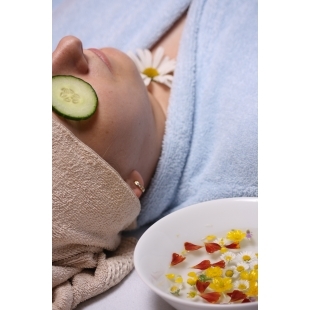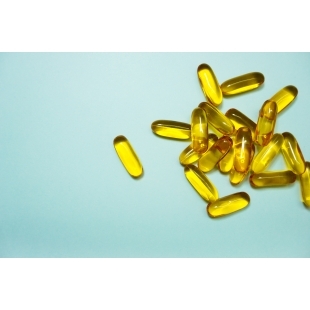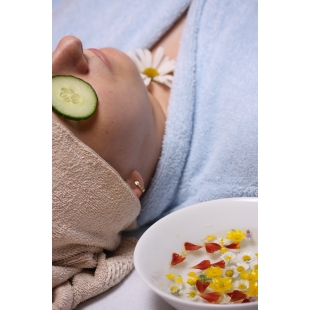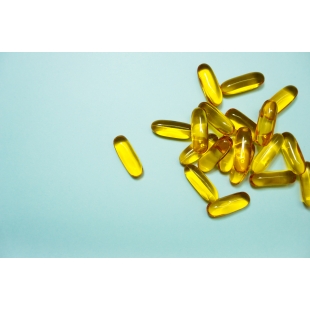All News
-

These 3 points are important for exercise to be truly effective!
In modern society, an increasing number of people are placing importance on their physical health. Many choose to rely on exercise to strengthen their bodies and maintain their youth in order to achieve a healthy body and youthful posture. The benefits of exercise are well known, but how can one choose the right and effective exercise? The following three things need to be considered:
Achieving moderate intensity: What exactly is the right moderate intensity exercise for you? (1) Age estimation algorithm: Subtracting age from 220 predicts the heart rate, and maintaining 60% to 70% of predicted heart rate during exercise is suitable exercise intensity. (2) Observe heartbeat and breathing: Moderate exercise manifests as slightly faster breathing and heartbeat, no shortness of breath, slight sweating, slight fatigue, and no fatigue when getting up the next day. (3) Hunger: There should be no hunger after an hour of exercise, and eating should not be excessive. If you feel hungrier and eat more after exercise, it means that you need to reduce the amount of exercise. (4) The ability to speak freely after exercise: For 60-year-old individuals, whether they can speak or sing during exercise can determine their exercise intensity. Some elderly individuals can sing while exercising, indicating that the intensity of exercise is too small. If you are too lazy to say anything during exercise, it means that the intensity of exercise is too great. (5) The intensity of resistance exercise: The size of repeated resistance is an important factor. For example, lifting dumbbells and repeating 10 times is tiring and just right. If you can easily do 20 without getting tired, it means that the intensity is too light. If you cannot do 5, it means that the intensity is too great. Choose a medium intensity, repeating 8-12 times.
Learn to combine: Aerobic + resistance Moderate intensity aerobic exercise, such as jogging, brisk walking, tai chi, fitness qigong, and other moderate aerobic exercises lasting more than 30 minutes, combined with strength training such as barbell training, push-ups, and pull-ups, have a positive effect on the immune system. However, if the amount of exercise at one time is too large or the exercise time is too long, it will be counterproductive and may reduce the body's immunity. Don't forget to warm up and stretch before and after exercise.
Able to persist: Last for 3 months To benefit from exercise, consistency is key, and exercise needs to be gradual. Long-term regular running can increase lung capacity, enhance lung function, promote heart blood circulation, improve cardiopulmonary endurance, and improve immunity. Occasional exercise and excessive exercise may not provide the same benefits, and may even harm the body. Scientific exercise practice involves exercising 3-5 times a week, with each exercise session lasting 40-60 minutes. Exercise intensity should not be too high. Continuing to exercise for 12 weeks may have the effect of improving immunity, and it is still necessary to continue to exercise after 12 weeks.These 3 points are important for exercise to be truly effective!more -

After only 10 minutes of exercise, 4 major changes occur in your blood vessels!
The number of immune cells in the body's blood increases, and other changes take place under exercise.
Immune cells in the blood increase after exercise: Two recent studies conducted by Finnish scientists concluded that just 10 minutes of exercise can increase the number of immune cells in the blood, which is essential in the fight against cancer. These studies involved 28 patients with newly diagnosed lymphoma and breast cancer. During the 10-minute cycling exercise, the number of cytotoxic T cells (which destroy cancer cells) and natural killer cells in the blood of lymphoma patients increased, along with the number of white blood cells, intermediate monocytes, and B cells.
Blood vessels dilate after exercise, which helps lower blood pressure: Exercise is a way to help blood vessels become younger without taking medicine or injections. Exercise-induced nitric oxide dilates blood vessels and promotes blood flow. Clinicians will consider prescribing "exercise" for patients with hypertension. Additionally, slight sweating during exercise helps to excrete sodium from the body.
Exercise will reduce triglycerides in plasma: In 2004, a study published in the Journal of Beijing Sport University on exercise and blood lipids found that aerobic exercise can reduce triglycerides and total cholesterol levels in plasma, increase good cholesterol, and reduce bad cholesterol. This helps improve blood lipids.
Exercise helps lower blood sugar: Many endocrinologists have mentioned that "muscle is a good hypoglycemic agent." Exercise increases the use of glucose by muscles, thereby lowering blood sugar levels.After only 10 minutes of exercise, 4 major changes occur in your blood vessels!more -

Skip breakfast and your brain won't turn on
Breakfast is the most important meal of the day because it provides the nutrients and energy your body needs to start your day. However, many people choose to skip this meal because they are busy or don't want to eat breakfast. However, skipping breakfast can have a negative impact on physical health, so let's look at the specific reasons.
First, skipping breakfast may reduce the body's metabolic rate, which can lead to reduced energy expenditure. This may make it easier for the body to store fat, which, in turn, increases the risk of obesity. Additionally, if you eat too many high-calorie foods at other times, those extra calories may be more easily converted into fat, further increasing the risk of obesity.
Second, skipping breakfast may also affect the body's ability to consume essential nutrients. Breakfast is the body's first chance to consume nutrients every day, and if you skip breakfast, you may be deficient in important nutrients such as protein, fiber, vitamins, and minerals. These nutrients are essential for the health of the body, and if they are deficient for a long time, they can have serious effects on the body.
In addition, skipping breakfast may also affect brain function. Studies have shown that breakfast has an important effect on the brain's cognitive ability and concentration. If you skip breakfast, you may feel drowsy and inattentive, and it may affect your emotional stability. These adverse effects may persist into other parts of the day.
In order to maintain a healthy body and mind, it is recommended to eat breakfast every day. Choose healthy, balanced breakfast options, such as oatmeal, whole-wheat toast with hard-boiled eggs or low-fat dairy products, or salads with a mix of fruit, nuts, and low-fat dairy products. If you're busy or don't have much time to prepare breakfast, try making breakfast options that are easy to carry and prepare, such as a healthy breakfast cupcake, granola cup, smoothie, or even a slice of toast or a glass of milk to start your day energized.
Finally, everyone should be reminded to drink at least 8 glasses of water a day and reduce their intake of foods and drinks high in sugar and fat. Maintaining a healthy diet can help you maintain a healthy weight, boost immunity, reduce the risk of chronic disease, and maintain physical and mental health.
In short, breakfast is the most important meal of the day and has a significant impact on body and brain function. Skipping breakfast can have a negative impact on your health, so we recommend eating breakfast every day, choosing healthy, balanced food options, and maintaining good eating habits to keep your body and brain functioning healthily.Skip breakfast and your brain won't turn onmore -

Facial acne problem? It's all solved here!
Acne is a common skin problem that can affect people's confidence and mood. Different areas of acne have different causes, so targeted treatments are needed. Many people attribute acne to too much internal fire or wet poison in the body, or eating chili peppers, but these claims do not stand up to scrutiny and have no basis in modern science.
There are many reasons for the inflammation of the hair follicles on our face, such as endocrine reasons, changes in our hormones, reasons related to our diet or sleeping habits, and not paying attention to hygiene, but it has little to do with the fire in the body. So, why do we get acne? What causes acne in different regions? Let's talk about these questions today!
Acne in the forehead:
Acne in the forehead area is mainly related to hormonal changes in our body. For example, during puberty, the menstrual cycle, and during pregnancy, some women also have outbreaks in their 30s. When one enters puberty, the body's hormones flourish very chaotically, of which the proportion of androgens is relatively high. Androgens mainly stimulate the rapid division and growth of the body. If there is a little more, it will cause our stratum corneum to thicken, and the stratum corneum around the mouth of the hair follicle thickens to the middle, resulting in horn plugs at the mouth of the hair follicle. The dirt cannot be drained, the oil is held inside, the bacteria multiply again, and finally, folliculitis is formed. Women around the age of thirty will inevitably worry a lot after having a family, lose their temper with their husbands and children, and have tantrums. This increases androgen levels, making them prone to acne. There is also a situation where staying up late often will aggravate the rise of androgen levels.
Therefore, we should pay attention to adjusting the hormone levels in our body. Children should exercise more during puberty, sweat more, drain excess androgens, maintain a good mood, good work and rest time, and acne will go away on its own. Women are the same. Increasing exercise, avoiding staying up late, and correctly dealing with negative emotions can help regulate hormone levels to make the skin better. Additionally, cleansing the face and hairline with oil can reduce clogged pores and reduce the occurrence of acne.
Acne in the nasal area:
Acne in the nasal area is often associated with mite infections, which grow in the sebaceous glands and hair follicles, causing inflammation and redness. Some people's faces are clean, but the nose is covered with red bumps, which are most likely related to mites.
The method of cleansing the face and nose is very important. Daily use of a gentle facial cleanser and nasal discharge can reduce the growth of oil and bacteria, which can effectively prevent acne on the nose. At the same time, one can also apply some ointment to slow down the acne of the nose. This treatment is very simple. First, apply iodophor to sterilize, and then use sulfur ointment to kill mites, once a day in the morning and once in the evening. After a period of continuous use, it will soon be good. In addition to this, acne on the nose can also be caused by excessive cleaning or the use of irritating products. Therefore, pay attention to choosing gentle cleansing products and cosmetics. Also, avoid picking your nose excessively, as this can worsen the pimple and cause infection.
Acne on the Cheeks:
Mainly located from our cheeks to the neck, this type of acne is primarily caused by bacterial infection. It is challenging to treat because the bacteria are often stubborn and hard to remove. The best way to manage this type of acne is through prevention, which involves maintaining clean and hygienic skin.
It is recommended to cleanse your face gently with a cleanser twice a day and avoid excessive rubbing of the skin. You can also use topical iodophor and fusidic acid to sterilize the area. It's essential to wash your clothes and sheets with boiling water at least once a week to kill the bacteria on them and prevent them from growing back. This also prevents itching at night that can lead to bacterial growth.
In addition, diet plays a significant role in cheek acne. Reducing the intake of fried and spicy foods while increasing fresh vegetable and fruit intake can help improve your skin's condition. If your cheek acne is severe, it's recommended to seek the help of a professional to determine if further treatment is necessary.
Perioral/Chin Acne:
Perioral acne is the type of acne that is related to our digestive tract. Acne on the chin is primarily caused by hormonal imbalances, particularly around the time of a woman's menstrual cycle. Maintaining a healthy and balanced hormone level is crucial in treating jaw acne. It is recommended to control your sugar intake, increase exercise and rest, and maintain good mental health.
Although eating chili pepper has a bacteriostatic effect on acne, its inhibitory effect varies depending on the bacteria. Too many peppers into the intestine may inhibit some bacteria, but the other part of the bacteria will grow and produce toxins. This can lead to acne around the mouth and hemorrhoids. To avoid this, it is recommended to eat less spicy food and strengthen bowel movements. People who love spicy food are often constipated, leading to acne around the mouth. Metabolites that can't be excreted produce a lot of sulfur and nitrogen-containing substances that are absorbed by the body, leading to this situation.
To improve facial acne, you can also improve your diet. Here are some suggestions:
Reduce your intake of foods with a high GI index, as they raise blood sugar levels quickly and stimulate insulin secretion, which increases the risk of acne.
Increase your antioxidant intake, which reduces the production of free radicals and maintains healthy skin.
Increase your zinc intake, which helps reduce the occurrence of acne.
Reduce your intake of dairy products, which may stimulate the skin's oil production and increase the risk of acne.
In conclusion, addressing facial acne requires overall health, proper skin care, and a reasonable diet. If you have long-term facial acne problems, it's recommended to seek the advice of a professional dietitian or dermatologist to develop a health plan that works best for you. Avoid rushing to see a doctor and potentially making the situation worse.Facial acne problem? It's all solved here!more -

The secret to preventing hair loss is revealed! A must-read for women!
Female hair loss is a common problem that can not only affect a woman's appearance but can also have a negative impact on her psychological and social well-being. There are many reasons for hair loss, including malnutrition, stress, hormonal imbalance, and more. Here are some common female hair loss problems and their solutions:
Malnutrition: Malnutrition is one of the main causes of hair loss in women. If your body lacks enough vitamins, minerals, and protein, your hair can become brittle, dull, and prone to breakage.
The solution: First, you need to ensure that your diet is nutritionally balanced. Eat more foods that are rich in protein, vitamin C, and zinc, such as meat, fish, eggs, nuts, and leafy greens. If your nutritional intake is still inadequate, consider taking vitamin and mineral supplements.
Stress: Stress is another common cause of hair loss in women. When you are in a chronically stressed state, your body secretes too many stress hormones, which, in turn, cause your hair to thin.
The solution: Reducing stress is very important for women to maintain healthy hair. Stress can be reduced by increasing exercise, learning relaxation techniques, getting proper rest, improving sleep, and more. In addition, you can relax through methods such as yoga and meditation.
Hormonal imbalance: Hormonal imbalance is another cause of hair loss in women. During periods such as pregnancy, breastfeeding, and menopause, women's hormone levels change, which, in turn, affects hair growth and health.
The solution: If your hair loss problem is due to hormonal imbalance, consider using a specific shampoo or taking hormonal supplements to help regulate hormone levels. However, it is best to consult a doctor before using these supplements.
Improper hair care: If you do not pay attention to the care of your hair, such as frequent use of hair dye, perming, excessive combing, etc., it will also cause the hair to become brittle, dull, and easy to break.
The solution: First, try to avoid excessive use of hair dye and perms, and choose products that cause less damage to the hair. At the same time, you can use natural hair care products and appropriate hair care methods to improve the healthy state of your hair. For example, comb your hair properly, don't use a comb with too much force when it's wet, keep your hair clean, and so on.
Hair loss problems are often related to the body's nutritional status and hormonal balance, so supplementing with health foods can help enhance root health. Here are some suggested health foods:
Folic acid: Folic acid is essential for cell growth and development, including hair cells. Folate deficiency may cause hair loss. Folic acid can be obtained from foods such as beans, leafy vegetables, chicken liver, pork liver, or you can also consider vitamin tablets supplemented with folic acid.
Protein: Hair is made up of protein, so supplementing with enough protein is key to keeping your hair healthy. The recommended protein intake comes from lean meats, poultry, fish, legumes, eggs, etc.
B Vitamins: Biotin and Niacin in the B vitamins help promote healthy hair roots and hair growth. B vitamins can be found in foods such as meat, legumes, nuts, whole grains, etc., and vitamin tablets supplemented with B vitamins can also be considered.
Vitamin D: Studies have shown that vitamin D deficiency may be associated with hair loss. It is recommended to supplement vitamin D with foods such as sunbathing, fatty fish, egg yolks, etc., or vitamin tablets supplemented with vitamin D.
Iron: Iron deficiency may cause anemia and hair loss. Recommended sources of iron intake include red meat, eggs, spinach, or iron supplements.
There are many causes of female hair loss that need to be addressed in a targeted manner. The above mentioned health foods can help enhance hair root health. However, please note that supplemental health foods are only meant to improve nutritional status and should not be a substitute for a balanced diet and a healthy lifestyle. If you are experiencing severe hair loss problems, it is recommended to consult a professional doctor or dietitian for more in-depth examination and treatment. In addition, maintaining a healthy lifestyle, such as reducing stress, exercising regularly, quitting smoking, and getting proper sleep, also has an important impact on hair health.The secret to preventing hair loss is revealed! A must-read for women!more -

Plant-Based Diets: Science-Backed Healthy Eating Choices
The plant-based diet is an increasingly popular eating pattern, and many studies have shown that it can provide numerous health benefits. One study found that a plant-based diet was associated with a reduced risk of heart disease, stroke, and diabetes. Additionally, another study found that plant-based diets were also linked to a lower risk of chronic diseases and improved digestive health.
These studies provide evidence that a plant-based diet has health benefits. Plant foods are rich in vitamins, minerals, and fiber, all of which offer numerous benefits to the human body. Furthermore, plant-based foods can help reduce the intake of saturated fatty acids, which are harmful fats that are linked to heart disease and other chronic diseases. Therefore, adopting a plant-based diet is a healthy dietary choice that helps maintain health and prevent chronic diseases.
In addition to research support, plant-based diets offer many practical recommendations to help people better achieve healthy eating. Here are some suggested actions:
Increase vegetable and fruit intake. People should try to increase the amount of vegetables and fruits in each meal to meet the recommended daily intake of five servings.
Choose healthy protein sources. Legumes, nuts, and seeds are excellent plant-based protein sources from which people can get sufficient protein.
Choose whole grains and multigrains. Whole grains and grains such as brown rice, oats, and whole-grain bread are healthy sources of carbohydrates and are rich in fiber and other nutrients with health benefits.
Avoid processed foods. Processed foods often contain high amounts of saturated fatty acids, salt, and sugar, which are all detrimental to health. Try to choose fresh, unprocessed foods to ensure healthy nutrient intake.
Minimize the intake of animal-based foods. People can achieve a plant-based diet by reducing their consumption of red meat, poultry, and dairy products. While a plant-based diet does not require the complete elimination of animal foods, reducing your intake of these foods can help maintain good health.
In conclusion, a plant-based diet is a healthy eating choice supported by science. In addition to reducing the risk of chronic diseases such as heart disease and diabetes, a plant-based diet can help improve digestive health and reduce the risk of chronic diseases. By increasing their intake of vegetables and fruits, choosing healthy protein sources, selecting whole grains and grains, avoiding processed foods, and reducing their intake of animal-based foods, people can achieve a plant-based diet to stay healthy and prevent chronic disease.Plant-Based Diets: Science-Backed Healthy Eating Choicesmore -

Invincible Pupils! Lutein, the Superhero for the Eyes!
Times are changing, and modern society is gradually shifting from paper to electronic media. 3C products are becoming more common, making life more convenient. However, some people worry that exposure to electronic screens can harm their eyes. At such times, doctors and nutritionists often recommend lutein supplements to protect the eyes. What benefits does lutein offer to the human body? How can we consume it for optimal absorption? Let's take a look at lutein!
What is Lutein?
Lutein is a carotenoid found mainly in green vegetables and fruits. Among them, spinach has the highest lutein content, while asparagus, green plants, citrus, honeydew melon, and tomatoes are also good sources of lutein. Lutein is a powerful antioxidant that can help protect the body's cells from free radical damage, reducing the risk of diseases such as heart disease, cancer, and eye diseases. Studies have shown that lutein is particularly beneficial for the human eye and can help slow the progression of age-related macular disease, a condition that affects vision.
How Lutein is Absorbed and Utilized:
Studies have shown that lutein needs to be ingested along with fat to be better absorbed and utilized by the body. In addition, lutein needs to be consumed along with other nutrients such as vitamins C, E, and zinc to be most effective.
About Lutein Intake:
Based on available research, it is recommended that adults consume 10 mg of lutein per day. Higher doses are recommended for those who already have eye diseases or want to further reduce the risk of developing them, but it is best to do so under the guidance of a professional doctor or dietitian. In addition to paying attention to adequate lutein intake, it is also recommended to consume other beneficial nutrients in the diet. Eating more green vegetables and fruits is recommended, as they are not only rich in lutein but also in other nutrients such as vitamins C, E, and zinc, which help protect the body's health.Invincible Pupils! Lutein, the Superhero for the Eyes!more -

What is DHA in Fish Oil: Benefits for the Body
What is Omega-3 in Fish Oil? Omega-3 is an essential unsaturated fatty acid, of which DHA is one of the most important components. DHA cannot be synthesized by the body itself and can only be obtained from the diet. DHA in fish oil is a very important food that has many benefits for the human body.
What is DHA? DHA is one of the essential unsaturated fatty acids for the human body. It is very important for the development of children's intelligence and vision, and is also beneficial to cardiovascular health. DHA in fish oil is a very good source. DHA accounts for 40% of polyunsaturated fatty acids in children's brains and 60% of polyunsaturated fatty acids in retinas. Therefore, it is essential to suggest that children should supplement DHA before the age of 2, which can help the brain develop, prevent cranial nerve development, and improve IQ. For children after 2 years old, it is still recommended to supplement with DHA. Eating fish oil for children of all ages is good for brain development. In addition, DHA is also beneficial for cardiovascular health. According to the recommendations of the American Heart Association, a daily supplement of 650mg to 1000mg of omega-3 fatty acids can significantly reduce the risk of coronary heart disease, heart attack, and stroke.
What is the Best Way to Consume Fish Oil? Fish oil is a fat-soluble food; it is recommended to eat it after meals for better absorption. In addition, it is recommended to choose a high-quality fish oil supplement. As recommended by the National Institutes of Health, choose products with the label "USP Verified" or "ConsumerLab.com" that meet quality standards and have been tested by a third-party agency. When choosing a fish oil supplement, please confirm its DHA and EPA content, and give preference to products with reliable sources and guaranteed quality. At the same time, we should also pay attention to avoiding excessive intake of fish oil, so as not to cause health problems.
Overall, fish oil supplementation is very beneficial to health, especially for organs such as the brain and heart. When choosing fish oil supplements, it is recommended to give priority to small and medium-sized fish as raw materials, ensure the content of DHA and EPA, and properly control the dosage of supplements. In addition, you can also increase the intake of fish oil through diet, such as eating salmon, sardines, herring, and other foods rich in fish oil. Finally, it needs to be emphasized that fish oil supplements are not a substitute for a balanced diet and a healthy lifestyle. In daily life, maintaining a moderate amount of exercise and a balanced diet is one of the important factors for maintaining good health.What is DHA in Fish Oil: Benefits for the Bodymore -

5 Benefits of Cranberry: Women Must Know!
Cranberry is a common fruit that is rich in nutrients and has many benefits, especially for women. Let's introduce them one by one.
Prevent Urinary Tract Infection
Cranberries contain compounds called proanthocyanidins that prevent bacteria from attaching to the walls of the bladder and urethra, thereby preventing UTIs. Studies have shown that daily intake of cranberry products can significantly reduce the incidence of urinary tract infections. Therefore, cranberry products are especially beneficial for women who are prone to urinary tract infections.
Maintain Urinary System Health
Cranberries are rich in vitamin C, which can help maintain the health of the urinary system. Vitamin C can reduce the number of bacteria in the urine, thereby preventing urinary tract infections. Plus, vitamin C boosts collagen production, which contributes to skin health.
Lower Risk of Cardiovascular Disease
Cranberries contain a variety of natural antioxidants such as flavonoids and anthocyanins, which can lower cholesterol levels and reduce the risk of cardiovascular diseases. A study found that daily intake of health foods containing cranberries significantly reduced the risk of high blood pressure and high cholesterol.
Improve Oral Health
Cranberries are also good for oral health. The anthocyanins they contain can prevent the growth of bacteria in the mouth, thereby reducing the occurrence of bad breath and tooth decay. Additionally, cranberries help prevent gingivitis and periodontal disease.
Maintain Bladder Health
Cranberries contain proanthocyanidins and quinic acid, compounds that can help maintain bladder health. Studies have shown that daily intake of cranberry juice can significantly reduce the incidence of bladder infections. Additionally, cranberries may also help relieve symptoms such as bladder pain and uncomfortable urination.
The benefits of cranberries for women are not limited to the above points but can also help reduce inflammation and maintain gut health. Therefore, it is recommended that women pay more attention to the intake of cranberry products or health foods containing cranberry nutrients to enhance their health.5 Benefits of Cranberry: Women Must Know!more -

Boost your immune system with these simple lifestyle tips!
With the outbreak of the new coronavirus, improving immunity has become the focus of attention. The immune system is the body's defense mechanism. When the body is threatened by the outside world, the immune system will immediately activate to attack pathogens and maintain health. So, how to improve immunity? Let's introduce them one by one.
Add enough nutrients The immune system needs adequate nutrients to function, so supplementing with sufficient nutrients is the key to improving immunity. Nutrients such as vitamin C, vitamin D, zinc, and selenium play an important role in the immune system. Among them, vitamin C can promote cellular immunity and antibody production, vitamin D can help the body absorb calcium, and zinc and selenium are important antioxidants. Foods rich in nutrients include oranges, broccoli, milk, salmon, etc. It is recommended that you obtain them through your diet.
Certain foods can boost immunity, such as:
Foods rich in vitamin C, such as citrus fruits, strawberries, watermelon, grapefruit, etc.
Foods rich in vitamin D, such as milk, cheese, egg yolk, etc. You can also supplement vitamin D through sunbathing.
Foods rich in vitamin E, such as nuts, seeds, vegetable oils, etc.
Zinc-rich foods, such as beef, pork, shrimp, crab, dried fruit, etc.
Many people in modern society are busy with work and have few opportunities to have a balanced diet. At this time, it is also a very good way to choose to supplement the vitamins and minerals they need through health food!
Appropriate exercise Exercise can improve cardiopulmonary function and strengthen the body's immunity. Studies have shown that proper exercise can promote cellular immunity and humoral immunity, and enhance the body's self-defense capabilities. It is recommended that you choose aerobic exercise, such as jogging, swimming, etc., 3-4 times a week, for about 30 minutes each time.
Good sleep habits Sleep is an important time for the body to recover and repair, and good sleep habits can improve the body's immunity. Studies have shown that long-term lack of sleep will reduce the body's self-defense ability and easily lead to diseases. It is recommended that everyone maintain enough sleep time, about 7-8 hours a day.
Balanced diet A balanced diet is one of the important factors in improving immunity. Adequate vitamins, minerals, proteins and carbohydrates are important elements for maintaining good health and immunity. It is recommended to eat more fresh fruits, vegetables, whole grains, and low-fat protein foods. In addition, drinking enough water is also essential for good health.
Regular physical examination Regular physical examination can detect abnormalities in physical condition early, and timely measures can be taken for treatment to maintain good health. A physical examination examines the functioning of various systems in the body, such as the immune system, respiratory system, and digestive system.
In short, improving immunity requires long-term persistence, and it needs to be adjusted and improved in many aspects such as living habits, eating habits, and mental state. Through the measures mentioned above, the body's immunity can be enhanced, the occurrence of diseases can be reduced, and the body can be kept healthy.Boost your immune system with these simple lifestyle tips!more -

Unlock the power of NAD+ for optimal health and energy!
What is NAD+? NAD+ is a coenzyme that plays a vital role in the human body. It is an essential factor in many biochemical processes and can promote the activity of many key enzymes in cells. NAD+ has a wide range of functions, including helping the body convert food into energy, maintaining normal cell growth and metabolism, regulating cell lifespan, and fighting stress. Therefore, the role of NAD+ in the human body is significant.
What are the benefits of NAD+ for the human body? NAD+ is one of the most important molecules in the human body, referred to as the "universal electron carrier." Like water, which is known as the "universal solvent," both are essential to our health. In addition to maintaining normal physiological functions of the body, NAD+ has many effects on human health. Firstly, it can help the body resist aging and disease. Studies have shown that aging and some chronic diseases relate to the decline of NAD+ levels. Therefore, supplementing NAD+ can help the body fight aging and diseases, enhance the body's immunity, and improve its resistance. Secondly, NAD+ can enhance the body's energy metabolism. As an essential factor in cellular energy metabolism, NAD+ can promote the process of converting food into energy in the body, helping the body use nutrients in food more efficiently and increase its energy level. Additionally, NAD+ can help the body fight stress. When the human body is under stress, it releases hormones that affect the chemical reactions in the body. NAD+ can counteract the effects of these chemical reactions and reduce the stress response in the body, maintaining its balance and stability.
What is the difference between solid pills and concentrated liquid or powder?
Solid pills or capsules containing silicon dioxide are typically taken three times a day, usually before or after meals. On the other hand, concentrated liquid or powder can be easily added to any drink and consumed once a day to meet daily silicon dioxide requirements. Additionally, the liquid or powder form of supplements is usually faster-acting and more easily absorbed by the body than solid pills or capsules.
When choosing a supplement, it is important to consider factors such as dosage, form, and quality. It is also advisable to consult with a healthcare professional before starting any new supplement regimen, especially if you have underlying health conditions or are taking medication.
In summary, silicon dioxide is an important nutrient that can be found in a variety of common foods. However, for those who have difficulty incorporating silica-rich foods into their diets, supplements are a convenient and effective way to meet daily requirements. When choosing a supplement, consider factors such as dosage, form, and quality, and always consult with a healthcare professional before starting any new supplement regimen.
Regarding NAD+, it is a coenzyme that plays a vital role in many biochemical processes in the body. NAD+ supplementation can have numerous benefits for human health, including enhancing energy metabolism, fighting stress, and helping the body resist aging and disease. It can be found in a variety of foods, and supplementation can be achieved through lifestyle measures or supplements. However, it is important to consult with a healthcare professional before starting any new supplement regimen, especially if you have underlying health conditions or are taking medication.Unlock the power of NAD+ for optimal health and energy!more -

Nutrition with a little common sense: Silicon dioxide is not only found in health products, but it turns out that it is also present in common foods!
The previous article introduced that silicon dioxide is a common compound and has many benefits for the human body. However, the human body cannot produce silicon dioxide by itself, so it can only rely on food, health food, or skincare products to supplement it!
The daily requirement for an adult is about 10mg to 40mg, but as age increases, the loss of silicon dioxide in the human body will also accelerate! This is when daily silica supplementation becomes very important!
Did you know that silica is also present in many of the foods we eat every day? These include wattles, bracken, spinach, brown rice, carrots, turmeric, and more. In addition, many other foods also contain silica, but many people may not know it. However, many people may have thoughts like "Don't like carrots, don't like spinach, brown rice? You have to cook it yourself, bracken? It doesn't sound delicious...", making it difficult for modern people to consume enough silica, especially those who eat out.
However, to maintain good health, we should try to get enough silica. If you don't like certain silica-rich foods, try other foods such as corn, sesame, oats, soybeans, apples, peanuts, etc. These foods are readily available and rich in silica.
If you eat out, you can also pay attention to the restaurant menu. Some dishes may add bracken or other silica-rich ingredients. Plus, you can cook at home and use these ingredients to create delicious and healthy dishes. In addition, in the busy modern society, health food is the easiest way to supplement silica, and it is easy to obtain!
There are two types of health food containing silicon dioxide: solid pills or capsules, and most health foods are taken three times a day, as long as you remember to eat them before or after meals. The other type is concentrated liquid or powder, and you only need to add 5-10cc to your drink to easily take the silicon dioxide you need for a day. Since silicon dioxide is colorless and odorless, you don’t have to worry about the taste changing when you add it to any food or drink! For those who don’t like to swallow health food, concentrated liquid or powder is also a good choice!
In conclusion, it is essential to get as much silica as possible, as it has many benefits for the human body, such as promoting bone and joint health, aiding digestive health, promoting skin elasticity, and more. Even if you don't like certain foods that contain silica, there are other options you can try to stay healthy.Nutrition with a little common sense: Silicon dioxide is not only found in health products, but it turns out that it is also present in common foods!more












